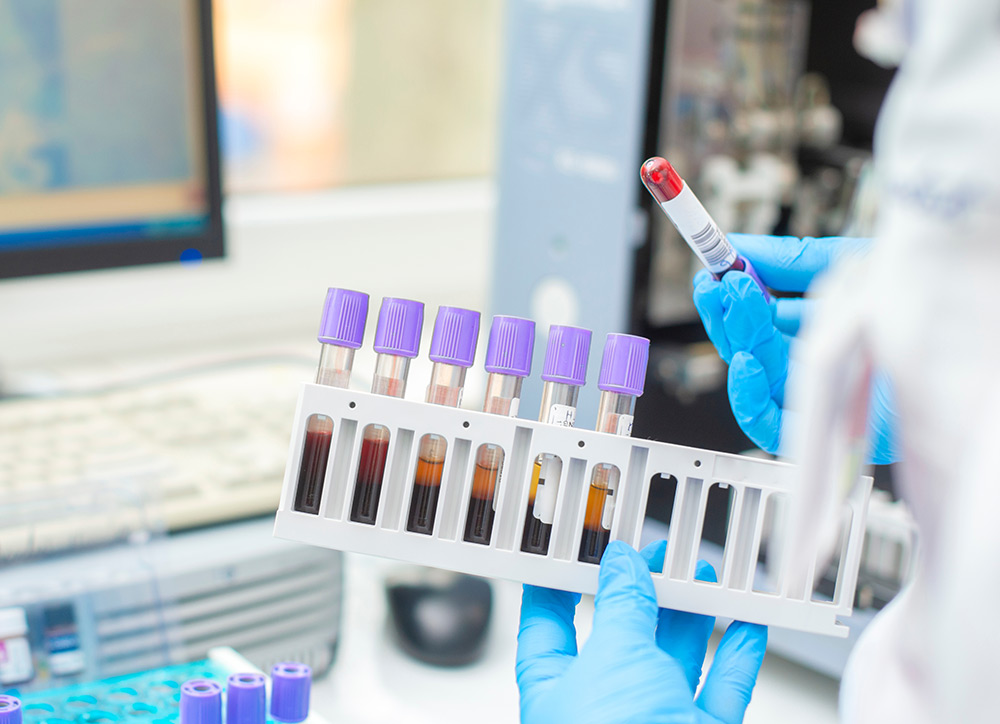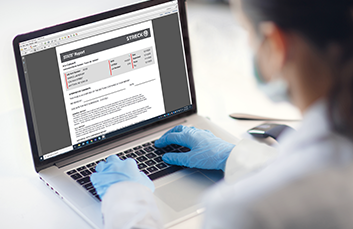The value of an ILQC program
Leading medical labs don’t see quality control simply as a way to satisfy the requirements of Clinical Laboratory Improvement Amendments (CLIA), College of American Pathologists (CAP) and the laboratory’s state requirements. Rather, they see the value of interlaboratory quality control (ILQC) in establishing their reputation as the go-to laboratory for clinicians, hospitals and the general public.

Providing laboratory services is a unique responsibility to provide accurate information that is vital to the health and lives of individual people. It is estimated that more than 70% of medical decisions are made using laboratory data. The results of medical lab tests are therefore extremely important to the individuals who are being tested, and to the clinicians who are trusted with their care; in other words, for your lab’s clients.
“It is estimated that more than 70% of medical decisions are made using laboratory data.”
Trust is everything in laboratory medicine. Clinicians and hospitals need to know that their tests will be handled with the utmost accuracy and precision. Errors, especially instrument errors, are unacceptable, and even one such incident may destroy the trust of client clinicians and hospitals.
Quality assurance must be managed and maintained by laboratory leadership. To do so, lab leaders and management must recognize that it is procedures, processes and systems ‒ and not people ‒ that represent the major sources of error. Therefore, reducing the potential for error in these systems represents the key to an optimal ILQC program.
By voluntarily exceeding the quality control standards of regulatory agencies, labs can demonstrate to clients that they are committed to providing the highest standards of laboratory analysis and results that clinicians, hospitals and the general public can solidly trust. Optimizing ILQC in the increasingly complex setting of the medical laboratory makes good sense to the technician and to the business manager alike.
“By voluntarily exceeding the quality control standards of regulatory agencies, labs can demonstrate to clients that they are committed to providing the highest standards of laboratory analysis and results that clinicians, hospitals and the general public can solidly trust. “
Laboratory testing is an area where errors occur, errors which may confound diagnosis and compromise patient safety. Lab error is therefore a common reason for medicolegal action. Improved quality control is a cost-effective affirmative action that laboratory leadership can take to reduce the possibility of error and to rapidly identify and resolve errors that do occur before they have a chance to cause harm.
Streck stands with you in ensuring safe, accurate and consistent results to your clients and the public. We offer resources and support for quality control and instrument verification that will give your lab the competitive advantage to earn the confidence and trust of your clients and their patients.
Our proprietary STATS® ILQC interlaboratory quality control program provides systematic analysis and allows for continual improvement of your crucial processes. We have access to data from a large peer group, so that we can compare your instrument performance and method to a large body of your peers. This provides a laser-focused approach to achieving the specific standards for the analytical phase of the total testing process laid down by the International Standardization Organization (ISO).
Key features of the STATS ILQC program
- Available to all customers at no additional cost
- Convenient web-based system with online data submission that can be accessed 24/7
- Peer group data comparison of the same instrument, method and control lot number
- Easy-to-read reports help labs detect changes before they impact patient results
- Lab Manager report available for centralized review of data points

For more information about STATS and interlaboratory quality control at Streck, click here.


Flow Cytometry: A powerful tool for clinicians

